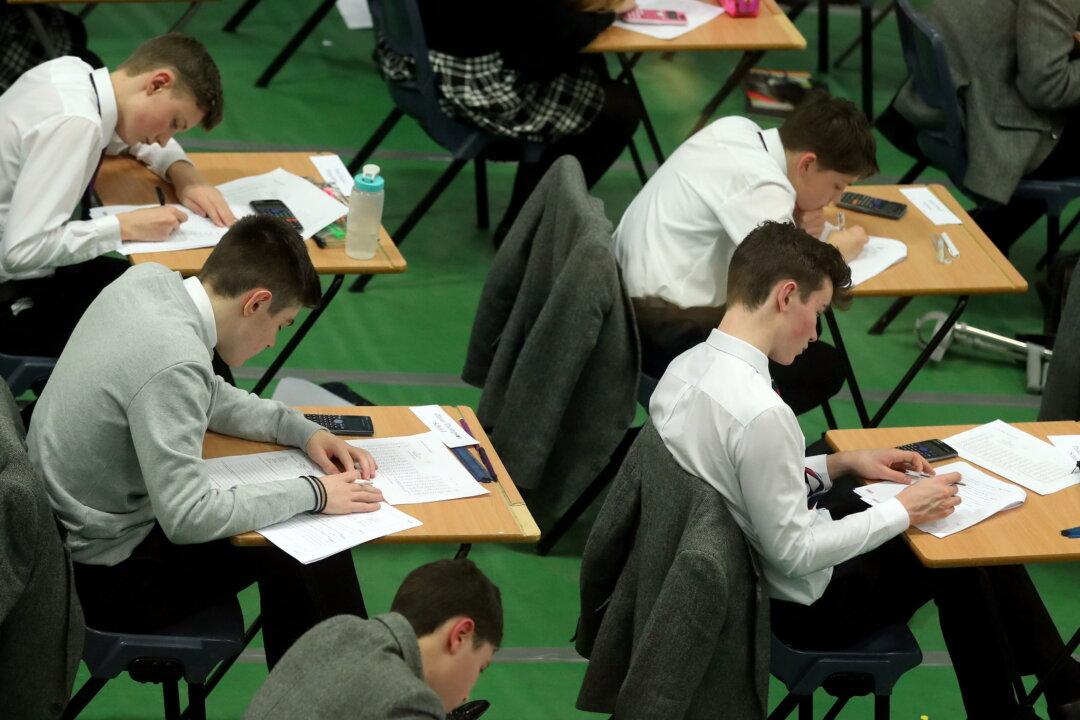As secondary school graduates open their GCSE outcome letters across the UK on Thursday, official data showed a 4.3 percent drop in this year’s top grade results.
The General Certificate of Secondary Education (GCSE) is an academic qualification in a range of particular subjects, taken in England, Wales, and Northern Ireland.





